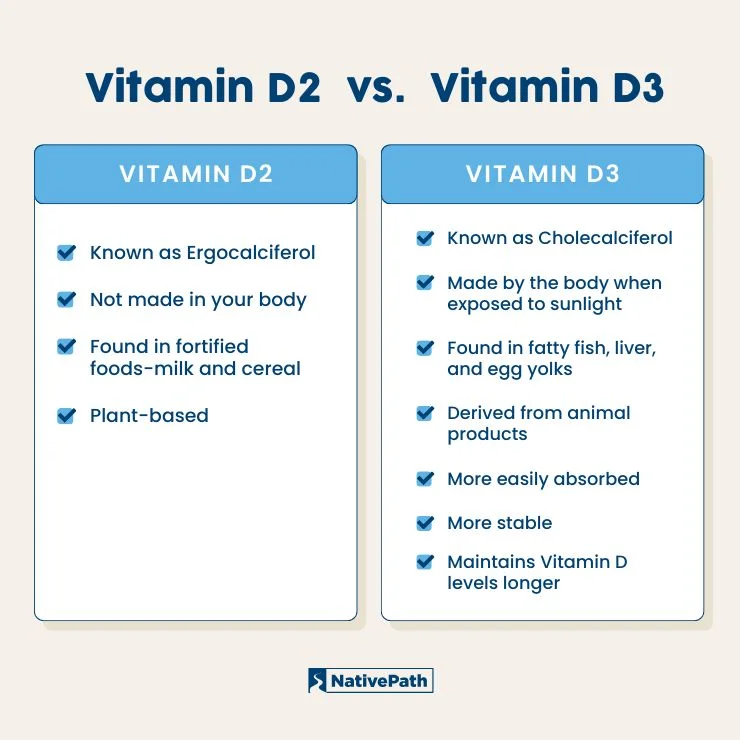When it comes to deciding which form of vitamin D is better—D2 or D3—it really depends on a few factors, including your diet, lifestyle, and personal health conditions.
Vitamin D3 comes from animal products, so it might not be vegan or vegetarian-friendly. On the other hand, D2 is plant-based. Both forms do a good job of increasing vitamin D levels in our blood, but D3 tends to keep those levels elevated for a longer time. Plus, D3 is known to be more effective in supporting bone health since it's easier for our bodies to absorb.
When making a decision between D2 and D3, you may also want to consider how easy and affordable it is to get each form. Depending on where you live, one might be more accessible or cost-effective than the other.
As for the recommended daily intake, The National Institutes of Health suggests (9):
- Birth to 12 months: 10 mcg (400 IU)
- Children 1 to 13 years: 15 mcg (600 IU)
- Teens 14 to 18 years: 15 mcg (600 IU)
- Adults 19 to 70 years: 15 mcg (600 IU)
- Adults 71 and older: 20 mcg (800 IU)
The same values apply whether you're taking vitamin D2 or D3. However, these are general guidelines, and it's always recommended to seek advice from a healthcare professional based on your individual health profile and needs. They can guide you on which form of vitamin D may be best for you, the optimal dosage to take, and any potential interactions it may have with other supplements or medications you may be taking.




